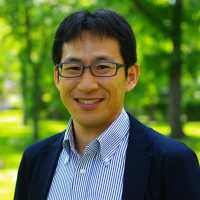MedicalResearch.com Interview with:
Yujiro Yamanaka, Ph.D.
Associate Professor Hokkaido University
Graduate School of Education
Sapporo, Japan
MedicalResearch.com: What is the background for this study?
Response: My laboratory has focused on the human circadian rhythms in particularly investigating the time of day effect of non-photic cues especially physical exercise and psychological stressor on circadian rhythms.
In mammals including humans, the central circadian pacemaker is located in the suprachiasmatic nucleus (SCN) in the brain hypothalamus. The SCN entrains to an external light-dark cycle and generates endogenous 24 h rhythmicity in body function. The hypothalamic-pituitary-adrenal (HPA) axis is our major stress response system. We can assess the response of HPA axis to psychological stress event by measuring the level of glucocorticoid hormone, cortisol in saliva. The cortisol shows clear circadian rhythm with higher levels in the morning and lower levels in the evening. This rhythm is generated by the SCN circadian pacemaker.
Previous study (Kudielka et al. Psychoneuroendocrinology 2004) could demonstrate that the cortisol stress level is significantly elevated by acute psychological stress event in the morning (9 a.m. to 10 a.m.) and afternoon (3 p.m. to 4 p.m.). However, there are no study examining the effect of evening psychological stress event on the HPA axis activity. Thus, our new study focused on examining whether the HPA axis differentially responses to morning and evening stress event in healthy subjects.
(more…)

